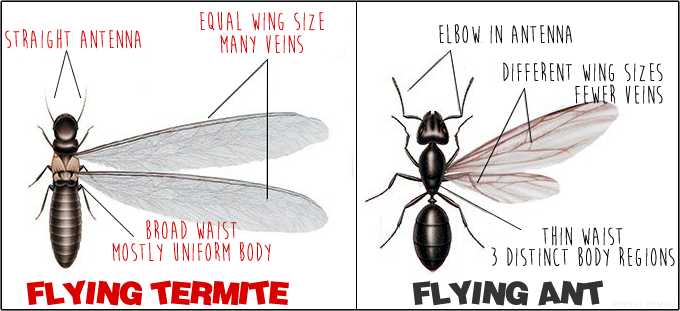What To Do About Flying Termites (Swarmers)
Do you have termites flying around your home or yard? Termite swarmers with wings, also called Alates, help termite colonies spread. Unlike soldier termites, a swarmers only goal is to reproduce and recolonize in a new location. Additional termite colonies around your home can be a serious problem if left untreated.
If you see swarmers, or even discarded wings, it’s important to get a termite inspection and treatment plan as soon as possible. Termite colonies also produce droppings called frass – this is another clear sign of an infestation. It typically takes 3-5 years for a termite colony to produce Alates – so if you see them, chances are there’s a well developed colony nearby.
A swarm of termites can be an unsettling thing. Fortunately, Pest Patrol has different treatment options from full house tenting to localized heat treatments. Get a free termite inspection and let us help you select the best option for your home.
Termite Swarmers vs. Flying Ants
Flying termites and flying ants look the same from afar but here are a few ways to spot the differences between termites or ants:

- Flying termites have large equal size wings with many veins
- The termite wings look slightly opaque and have a yellow hue to them
- Their long waists are uniform in shape.
- Termites are more visible than ants when they are swarming
- They have straight antennae as opposed to flying ants
- They eat cellulose in wood and are attracted to moisture
- Subterranean termites swarm in the warm spring and summer months
- Drywood termites swarm in the summer and in to the fall
When is Termite Season in San Diego?
While there is no off-season for termites, peak activity occurs during the typical baseball season. When you are thinking about termite prevention, think about the San Diego Padres schedule (April – September) and the post-season is swarming season (September and October!)

